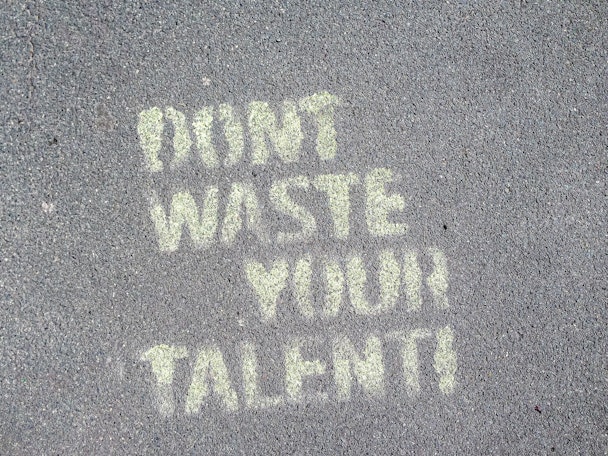Do not give your best work to bad clients (no matter what LinkedIn says)
Copywriter and advertising lecturer Andrew Boulton thinks a terrible boss or client should be given the ideas they deserve.

/ by Etienne Girardet on Unsplash
In this week’s instalment of the Perils of LinkedIn, our hero gets himself into a spot of bother with The Diligent.
In fairness, this is neither the worst, nor the most frequent upsetting of the humourless hordes of LinkedIn I’ve encountered. Usually, I’m disciplined for bad language – a sure sign, they say, of a copywriter of no real talent or imagination (to which I say, imaginatively, go fuck for a puddle).
This time, I had carelessly (carelessness is a common theme in my scandalising of the Linked) suggested that a writer working for shitty people should never give them their best work – saving it instead for a better place.
The reaction, in small but vocal pockets, was that this attitude showed, at best, a lack of professionalism, at worst an absence of self-respect. In fairness, the people disagreeing didn’t do so with any particular fury, just the quiet disapproval usually found in stern Victorian fathers.
But, however politely they expressed their despair at my flippant attitude to the solemn bonds of employment, I found the argument rather sad.
I suppose, my point does need a little nuance (the preferred tool of ham-fisted internet debaters everywhere). My point was solely about writers, simply because I can’t comment with authority on any other walk of life.
And, for a writer, the withholding of your best and most imaginative work doesn’t necessarily mean that your employer is being swindled out of a salary. It simply means that a writer working for a person who would remain un-pissed upon in a blaze, will hand over ideas that are simply ‘good enough’. And ‘good enough’, in a court of employment law, is indeed good enough.
My argument was essentially this: if you write something extraordinary, that fills you with pride and joy, then that thing belongs in the hands of someone who will share that pride and joy. Having given my very best work to many an undeserving recipient, I can tell you there is no taint quite so sour or indelible as a lukewarm response to a sizzling idea.
This invites, fairly I suppose, accusations that writers are as delicate as snowdrops on a railway track. That our precious, dry-clean-only hearts are too needy for the world of work. You shouldn’t expect, I was told in the Land of Links, applause for simply doing your job.
The problem is that I very much do. I am not building an Ikea coffee table. There is no defined path to a solution, nor is there an obvious and easily-accessible destination. Writers are literally pulling their work from the sky. If this does not deserve applause, of some variety, then what on earth does?
The biggest complaint about my view seemed to be this: if you do not do or give your best then you are (primary school cliché alert) only cheating yourself. How will you ever improve unless you only ever Give Your All?
Now, as I mentioned above, I never said that a writer should not be giving their all – simply that they should not be giving away their all to someone who does not appreciate it. Produce as many wonderful ideas as you possibly can just, like puppies, be considerate of where they are homed.
But also, the argument about not being able to better yourself as a writer if you withhold your best work feels depressing. Development as a creative, surely, does not only exist within the confines and conditions of your employment? If it did, then we have no agency over our journey as creative thinkers – only the people who employ us may permit and validate that journey, so we’d better hope we get good ones.
So, though chastened, I am unrepentant. I repeat, then, shitty people do not deserve your best ideas. Give them only what they need, and save your brightest rays for clearer skies.
Andrew Boulton is the author of Copywriting Is: 30 or so thoughts on thinking like a copywriter
